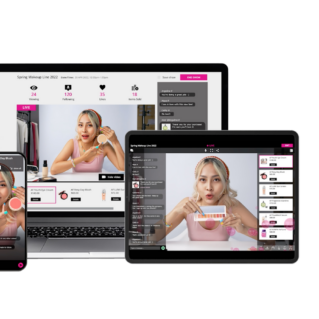If, and when, to outsource your distribution, warehousing, and fulfillment services.
The term third-party logistics or “3PL” has become antiquated as it conjures up a siloed client/vendor arrangement. Being partners foster more collaborative strategies, and can yield benefits for your business and your customers, over and above the pure play of outsourcing your supply chain.
The prevailing mindset seems to be that you use a 3PL to outsource for fulfillment when you’re a small company, and then as you grow you try to doing it yourself, which usually entails buying or leasing a warehouse. Whatever your decision, it should always revolve around what is right for your customers.
Small vs. Large
First off, smaller companies should rethink using a 3PL for all their fulfillment services. If you’re really small, we advise you to handle the orders yourself and figure out what your customers want by using the easily accessible feedback that presents itself with the lower number of customers you have at that stage of your growth. On a per-order basis, the cost to do a few dozen orders a month with a 3PL is much, much higher than the cost to do it with thousands of orders a month.
The mistake of outsourcing can be detrimental to many promising smaller businesses due to the higher costs involved and/or the dissatisfaction of customers due to the commoditization of a once personal, high-touch service. When you get to be a mid-size company there are suddenly a lot of reasons you may want to outsource. For instance, you don’t want to tie up your hard-earned capital in warehouse space—the opportunity cost of that money is just too much. It can have a much greater impact when used to bolster your marketing, workforce, or your core competency. In other words, outsourcing your fulfillment when you have a small operation, with a relatively smaller number of products and customers can be a bad choice. The opposite being true as you grow into a larger business. However, many growing, smaller businesses tend to think larger ones do everything in-house and that must be how they grew. This is simply not the case.
/ Start With Strategy
Like with other parts of your business that you oversee, start with strategy. Who do you want to be when you grow up? How do you want to be seen by your customers? How do you intend to brand yourself successfully as a unique lifestyle brand with highly customized experiences for no-degree-of-separation customers? Are you going to be more of a mass marketer who only needs a relatively generic customer experience that gives the most customers a best-cost option? These are totally different animals. It can be great to use a 3PL in the latter scenario, but it’s not always the right decision in the former. A 3PL may not put the same care into preparing orders that you would if you were doing it yourself. If you do find a 3PL that can offer that level of customization, it may prove to be a prohibitively expensive proposition. Who you want to be, and how you want to get there, needs an understanding that you can’t have everything, or be all things to all customers.
/ Make Friends With Compromise
Logistics requires it. But which compromises are going to work for you and your customers? For instance, will you be more economical or more personal and customized? You need to pick one. And you can’t get that answer without asking that original fundamental strategic question. If and when you do decide to outsource, make sure you pick a partner who can help you make the correct decisions around carriers, warehousing, least-cost routing software, customer experience and so forth. One that can help your business go to market the right way, for you and your customers. There are lots of variables—an almost infinite number— at play in fulfillment, and it’s a tough equation to solve internally for any company whose value and core competency does not revolve around fulfillment.
/ Don’t Step Over A Dollar To Pick Up A Dime
Making what seems like a smart decision in one area of your fulfillment may not turn out to be a moneysaving strategy after all. Playing with any metric can have dramatic negative consequences elsewhere in the supply chain, which can wreak havoc on customer relationships. It needs to be looked at holistically, by experienced people with complex algorithm software that take into account the whole picture. Paying those types of people to help you can actually add up to dramatically cheaper, faster and more accurate fulfillment than trying to do it yourself.
/ Don’t Fall Victim To Your Own Success
This is especially true when you’re trying to ramp up your supply chain from a garage-sized operation to a real ecommerce business, with a lot more customers and moving parts to consider. Problems in other areas of business growth pale in comparison to those a growing business needs to solve in its supply chain. Getting it wrong, particularly with small parcel strategies, can be a business-ending mistake. Knowing the answers to questions that you don’t know to ask is impossible. Find a partner you can trust, and use their knowledge and economies of scale—that is their core business, after all. You’re much better off focusing on your business and the needs of your customer base.
/ Keep Your Promises
It doesn’t matter how good your product is or how large you have grown your customer base if you can’t fulfill in the timeframe and with the accuracy your new customers expect. You are likely to lose those customers and any future ones you aspire to have. Not to mention what it will do to your reputation. Thanks to social media, we now live in an opinionsharing economy. Customer word-of-mouth trumps everything else in your marketing arsenal.
/ Growth Can Be Rapid. How Quickly Can You Scale?
It’s all about how you deal with sudden, unexpected traction in the market for your products. Your manufacturing may have the capacity; you may have all the right people working for you and your business may well be firing on all cylinders. But frequently those things aren’t what can harm your business. They are not the things your customers see or care about. They care about getting the right things they ordered, in the timeframe you promised you would deliver them. During explosive order growth and seasonal peaks, things like accuracy and speed can go by the wayside. It’s all about finding a trusted partner who can handle your market’s volatility, and satisfy your most important asset—your customers—without any major hiccups.
The Short Answer?
When you’re small enough to have an almost personal relationship with customers, handle your fulfillment personally. As you ramp up your business, you should consider outsourcing to a good 3PL. The right time to outsource will present itself with the following symptoms:
- Fulfilling orders is requiring you to take your eye off the ball that made you successful in the first place— you’re spending more time worrying about fulfillment than you are your real business.
- You’re getting negative feedback from your customers regarding delivery times and/or order accuracy.
- The costs of getting your products into your customers’ hands seem to be spiraling out of control.
Finding the right 3PL won’t just reduce costs and increase efficiency. The promises you can now feel comfortable giving to your customers, as well as the increased satisfaction that results, will give you a serious competitive advantage in your space.
 Casey Adams— Is the president of visible supply chain management, one of the fastest-growing supply-chain management companies in the US.
Casey Adams— Is the president of visible supply chain management, one of the fastest-growing supply-chain management companies in the US.


